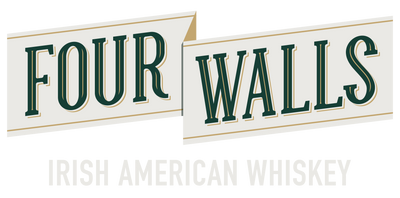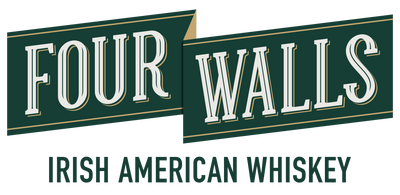This Repeal Day, Toast the Fellowship of a Good Bar

This summer, I got to drink in a brewhouse from the 16th century. It was in Munich, and the place was an institution, a city landmark, proudly displayed on every map and in every guidebook handed out to tourists wandering the cobblestoned streets. A few hours north of there, in Cologne, I drank at a place much younger, hailing only from 1904, but still just as beloved by the city’s residents and crowded every night by locals and visitors alike. These places have been serving nonstop since their founding, and I get the sense that they’ll be serving for another hundred years or more.
In America, we have nothing like that. Sure, there are places here that, at one time, may have served drinks early in our nation’s history, but inevitably, at some point, the place also housed some other, not nearly-so-fun business. That transition – from bar to boarding house, dry cleaners, or something else – always came between 1919 and 1933, during prohibition, that ridiculous, 14-year period of moral tyranny that caused more crime than it solved and destroyed countless lives.
Though prohibition didn’t ban bars outright, it did take away their product, the only reason they existed to begin with. And even though they could remain in business, most did not. When the Volstead Act went into effect, bar owners sold their furnishings and locked their doors, never to open them again. Sure, some remained as speakeasies, but the vast majority – experts estimate up to 15,000 of them – were shuttered for good.
For 13 long years, if you wanted to drink outside of your house, you’d have to commit a crime. You’d descend darkened stairs and knock on a featureless door; you’d murmur a password and gain entrance to a small, smoke-filled room. Then you’d drink whatever was available – bathtub gin, yeasty home brew, watered-down rotgut – and ask no questions. You’d talk in hushed tones, literally “speaking easy” to avoid alerting the fuzz patrolling the sidewalks above. It was sketchy, making felons of millions of Americans, putting coins in the coffers of organized crime, and turning the nation into a land of willing scofflaws.
But then, on December 5, 1933, everything changed. On that date, the 18th Amendment was repealed, and America was wet once more.
And I mean ALL of America.

In Indianapolis, Indiana, for example, the Penn Way Inn began selling booze. Now, to be clear, the saloon occupying the Flat Iron-shaped building at 605 North Pennsylvania Avenue had opened when the prohibition on beer had been lifted in April, but in December, they got to serve the hard stuff, and residents were certainly ready for it. Indianapolis had been hard hit by prohibition. Indiana, not content with the restrictions of the 18th amendment, passed a “Bone Dry Law” in 1925, strengthening Federal laws and increasing punishment. After prohibition began, the city’s police force at first reported a drop in those crimes common to late-night revelers, like fights and public drunkenness. But within a short time, they found themselves overwhelmed by the moonshiners and bootleggers, and organized crime increased. In a city also hit hard by the Great Depression, the Penn Way Inn, which eventually became a beloved dive bar called the Elbow Room, was a welcome respite, an oasis in the desert that was the 1930s.

For 84 years, this two-story saloon modestly served a local crowd. It housed friends and relatives, locals talking about the weather over a pint, and strangers meeting for the first time after a long day at work. These were things absent during the years of America’s “great experiment,” and while some would argue such customs were small, they were sorely missed. Humans are social, not meant to be cooped up alone without an outlet for interaction. And this is the service the Penn Way, later the Elbow Room, provided society. Sadly, in 2017, after eight decades in Indiana’s capital city, the Elbow Room closed, the building was sold, and now all that remains are the memories of a single day of joy in December when we could once again share each other’s company.
The story is the same all over the country.
In San Jose, California, as another example, Patty’s Inn also opened on Repeal Day. Formerly a grocery store, this small, indiscrete pub at 102 Montgomery Street was founded by local rancher Pat Krickeberg in 1933. It became a popular destination for what was once a very rural, sparsely populated agricultural community in Northern California. While the crowd there wouldn’t have been wearing suits or hats like those in the photos of Repeal Day in New York City, they were still just as overjoyed to have a place where they could legally wet their whistles and meet up for conversation. Popular with farmers and farmhands, it was quiet and kept to itself (save for an occasional disturbance, like when it was raided in 1938 for having an unlicensed pinball machine).

Over the years, Patty’s Inn became popular with the tech crowds too, and wore its age gracefully, proudly displaying bric-a-brac from decades of service. Like the Penn Way Inn, Patty’s served modest food and kept humble prices. It was a place to meet after work during the week or to watch a game on the weekends. For some, it was a second home, and for others, a brief moment of escape from all the pressures of life. And in the end, it went the same way as the Elbow Room. Although it survived an earthquake in 1989 and a fire in 1993, the one thing it couldn’t survive was Google, which bought the property and closed it down in 2021 (ultimately demolishing the 130-year-old building it was housed in).

If the past few years have taught us anything, it’s that we aren’t meant to be alone. We yearn to share space with our fellow humans, the other passengers on this trip we call life. Imagine a COVID quarantine of thirteen years. I know to some, it reeks of hyperbole; after all, during prohibition, we could still do things like go to the movies, attend dances and parties, and generally be around other people. But there’s nothing that replaces the feeling of a comfy bar stool, a cold drink in your hand, a hearty laugh, and a meaningful conversation. And so, when the government came to its senses and allowed people to drink once more, on December 5, 1933, Americans turned out in droves for the fellowship only found in a bar. They stormed places like the Penn Way Inn in Indianapolis, San Jose’s Patty’s Inn, and thousands of other places across the country and reveled in their newfound freedom. This year, just to remember the past, we should all do the same. Happy Repeal Day!
- Tags: Bars Sorry We're Closed



